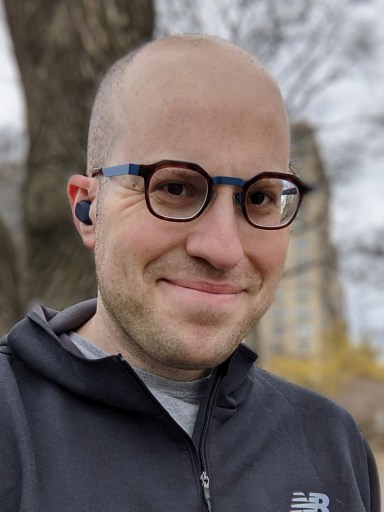In this Diff post, we are interviewing Ori Livneh, a Google.org Fellow, Wikipedian for over 17 years, and a Wikimedia technical contributor for over a decade. Ori was supporting Abstract Wikipedia at the Wikimedia Foundation for six months. The Google.org fellowship enables folks from Google to work on open-source projects for non-profits. The fellows joining this project are focused largely on supporting the backend of WikiFunctions. You can learn more about the fellowship on Meta-wiki.
Tell me a little about your background:
I am a software engineer at Google, where I am a member of the TAO (Tools, Architecture, Optimization) team. My team’s mission is to make computing at Google faster and more efficient. In my day-to-day role, I focus on optimizing core libraries — common code that is used in many Google applications. It’s an area where relatively small changes can have a massive impact, because of Google’s massive scale, which I find very gratifying.
Before coming to Google, I spent four years at the Wikimedia Foundation — it’s here at the Wikimedia Foundation where I got my first taste of performance engineering, working on making Wikipedia pages faster to load and to edit. During my time at the Foundation, I was fortunate to have formed and led the first dedicated performance team at the Foundation, which is still growing strong.
What is your role as a Google.org Fellow?:
I’m the Tech Lead (or TL) for the Abstract Wikipedia Google.org Fellowship. This means that I help plan and delegate the technical work that we are doing.
What made you apply for the Fellowship to support the Wikimedia Foundation?:
I first heard of Abstract Wikipedia in 2020, when the project was just beginning to take shape, and was captivated by its potential to dramatically increase the amount of knowledge that is available to people in their own language. Like 95% of the world’s population, English was not my first language, and I vividly recall the experience of using the early web with a limited grasp of English, and how hungry I was for content in my primary language. Although my English has improved a lot since those days, and there is a lot more content available in Hebrew on the web today, I know that for many millions of people the internet has still not delivered on its promise of making all knowledge available at their fingertips. So I was very interested in contributing to Abstract Wikipedia, but not sure how.
When the Google.org Fellowship was announced, I saw that it would be a unique opportunity for me to get involved and have an impact. I’ve been a Wikipedian for over 17 years, and a Wikimedia technical contributor for over a decade, so I have a good understanding of the Wikimedia tech stack, and the social dynamics of how Wikimedia software is developed, and how they are both similar to and different from how things work at Google. The standard term for a Google.org fellowship is six months, which is not a lot of time, especially if you have to spend much of it ramping up. So I felt I was uniquely well-positioned to help the other fellows participating in the program get up-to-speed quickly, and to support them in the course of the fellowship, so that their contributions are as impactful as possible.
What are some lessons you learned from the last 6 months of your Fellowship?:
Prior to the fellowship I had not had a chance to work closely with a program manager or a product manager at Google, probably because my day-to-day work is not specific to any user-facing product. The cohort of Google Fellows included both roles, so that was a new experience for me, and I learned a lot about the value of having folks with these skill sets on one’s team.
I also learned a lot about Natural Language Generation (NLG), a field I had no exposure to prior to the Fellowship. One of the highlights of the Fellowship for me was hearing a talk by Maria Keet, a professor at the University of Cape Town and a volunteer contributor to Abstract Wikipedia, about the limitations of various extant NLG systems. Most NLG systems were designed primarily around English and a handful of other prominent languages, and Maria showed how these designs fall apart if you try to use them to model indigenous South African languages like isiXhosa and isiZulu.
What’s next for you after your Fellowship?:
I’ll be going back to my previous role in software optimization and transitioning back to the role of a volunteer contributor to Wikimedia projects, which I hope to continue to do in my spare time.
To learn more about the work towards Abstract Wikipedia and Wikifunctions, visit the project’s page on Meta-wiki: Abstract Wikipedia#Participate.
Google.org, Google’s philanthropy organization, supports nonprofits that address humanitarian issues and apply scalable, data-driven innovation to solving the world’s biggest challenges. The Google.org Fellowship enables Googlers to complete full-time pro bono technical work to accelerate the social impact of nonprofits and civic entities.

Can you help us translate this article?
In order for this article to reach as many people as possible we would like your help. Can you translate this article to get the message out?
Start translation
